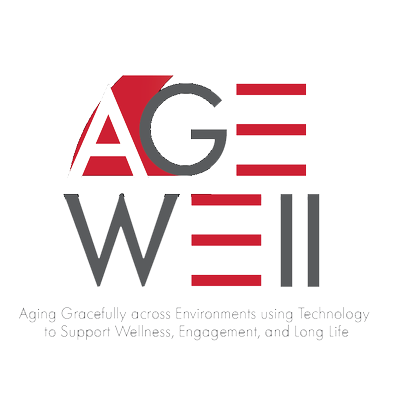Accessibility: Ensuring persons with disabilities have access, on an equal basis with others, to the physical environment, to transportation, to information and communications, including information and communications technologies and systems, and to other facilities and services open or provided to the public, both in urban and in rural areas (United Nations Convention on the Rights of Persons with Disabilities, n.d.).
Agency: The view of view social action as something purposively shaped by individuals within a context to which they have given meaning (Drislane, R. & Parkinson, G., n.d.).
Assistive Device: Devices whose primary purpose is to maintain or improve an individual’s functioning and independence to facilitate participation and to enhance overall well-being. They can also help prevent impairments and secondary health conditions (World Health Organization, n.d.).
Assistive Technology: Products, equipment, and systems that enhance learning, working, and daily living for persons with disabilities (Assistive Technology Industry Association (n.d.).
Built Environment: All of the physical parts of where we live and work, such as homes, buildings, streets, open spaces, and infrastructure (CDC, n.d.).
Cognition: All forms of knowing and awareness, such as perceiving, conceiving, remembering, reasoning, judging, imagining, and problem solving (American Psychological Association, n.d.).
Communication: The interaction between two or more individuals in order to construct understanding (International Society for Augmentative and Alternative Communication, n.d.). Includes verbal, nonverbal (physical), written, and interpersonal communication.
Cross-Cultural Competence: “A set of congruent behaviours, attitudes, and policies that come together in a system, agency, or among professionals that enables effective work in cross-cultural situations.” (U.S. Dept. of Health and Human Services, Office of Minority Health, 2016)
Culture: The languages, customs, beliefs, rules, arts, knowledge, and collective identities and memories developed by members of all social groups that make their social environments meaningful (American Sociological Association, n.d.).
Developing Country: A country whose per capita gross national income is less than the standard set for industrialized countries as determined by the World Economic Forecasting Model (United Nations, 2014).
Education: Diverse methods of learning leading to additional skills, knowledge, and/or competencies. Includes formal and non-formal learning methods (Organization for Economic Co-operation and Development, 2018).
Ethnic group: A group of individuals having a distinct culture – a subculture- in common. The idea of ‘ethnic group’ differs from that of ‘race’ because it implies that values, norms, behaviour and language, not necessarily physical appearance, are the important distinguishing characteristic. Usually, ethnic groups are thought of as minority groups within another culture (Drislane, R. & Parkinson, G., n.d.).
Ethnicity: “a group of people who identify with each other based on common ancestral, social, cultural, or national experiences” (Bomani, N., 2018).
Environment: the indoor and outdoor surroundings where a person lives, works, or operates (Davis, F., 2016).
Essentialism: sociological (as opposed to philosophical) theory which states that positions on gender, sexuality, race, ethnicity or other group characteristics are fixed traits, not allowing for variations among individuals or over time (Basics of Philosophy, n.d.).
Functionality: The quality in something of being very suitable for the purpose it was designed for (Oxford Advanced Learner’s Dictionary, 2019).
Functioning: Body functions, body structures, activities and participation. It denotes the positive aspects of the interaction between an individual with a health condition and that individual’s contextual factors, including environmental and personal factors (World Health Organization, 2013).
Geography: The ways in which place, space, and the environment are both the condition and in part the consequence of human activity (Gregory, D., Johnston, R., Pratt, G., Watts, M., & Whatmore, S., 2009).
Identity: who a person is, or the qualities of a person or group that make them different from others (Cambridge English Dictionary (n.d.).
Implicit: Suggested but not communicated directly (Cambridge English Dictionary, n.d.).
Language: A social behaviour including manner, method, and tongue of communication (Drislane, R. & Parkinson, G., n.d.). Language includes verbal, nonverbal (physical), and written communication.
Natural Environment: All living and non-living things that occur naturally on a particular region (Biology Online Dictionary, n.d.).
Political concerns: “…All that relates to the way a society is governed. Politics is the process by which the community makes decisions and establishes values that are binding upon its members” (Cambridge Dictionary, n.d.).
Prejudice: an unfair and unreasonable opinion or feeling, especially when formed without enough thought or knowledge (American Psychological Association, n.d.).
Race: “A classification of humans beings into different categories on the basis of their biological characteristics.” (Online Dictionary of the Social Sciences. Retrieved from http://bitbucket.icaap.org/dict.pl?alpha=R).
Religion: “A set of beliefs concerning the cause, nature, and purpose of the universe, especially when considered as the creation of a superhuman agency or agencies, usually involving devotional and ritual observances, and often containing a moral code governing the conduct of human affairs.” https://www.dictionary.com/browse/religion
Socioeconomic status: “the social standing or class of an individual or group. It is often measured as a combination of education, income and occupation. Examinations of socioeconomic status often reveal inequities in access to resources, plus issues related to privilege, power and control.” (In Control, 2017).
Smart technology: Technology that has interactive qualities that enable the user to have control, often via the internet (Drislane, R. & Parkinson, G., n.d.).
Stigma: “As used by Erving Goffman (1922-1982), a differentness about an individual which is given a negative evaluation by others and thus distorts and discredits the public identity of the person” (Drislane, R. & Parkinson, G., n.d.).
Tradition: A complex set of relationships between the past and the present, in which the past sets precedent for the present and the present reflects the past in adherence to a particular tradition (Green, T., 1997).
Universal design: “The design and structure of an environment so that it can be understood, accessed, and used to the greatest extent possible by all people regardless of their age or ability” (Centre For Excellence in Universal Design, n.d.).
User-centered design: “…Design processes in when end-users influence how a design takes shape.” (Abras, C., Maloney-Krichmar, D., Preece, J., 2004).
